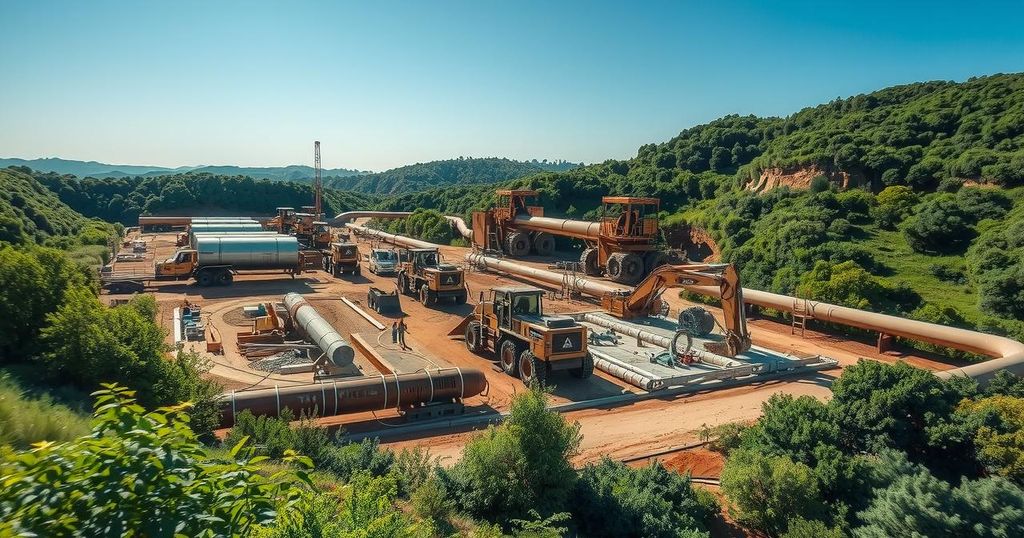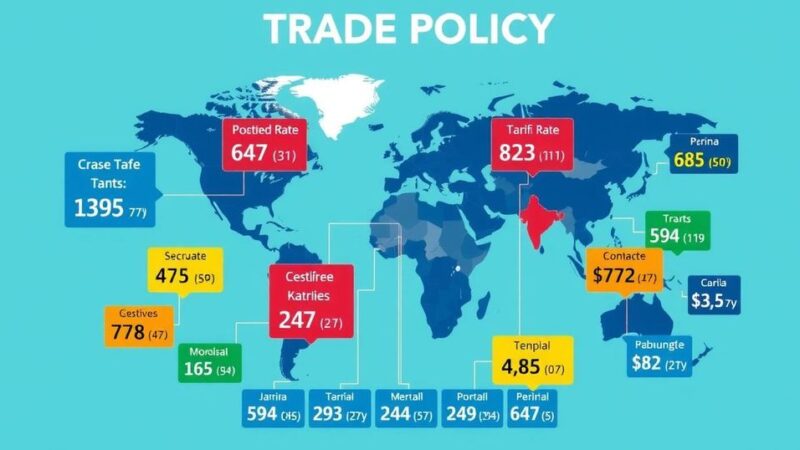The US has approved a US$4.7 billion loan to the TotalEnergies LNG project in Mozambique, crucial for a project labeled a “carbon bomb”. Delays stem from insurgent violence, prompting concerns over funding and human rights violations. Despite significant emissions projections, EXIM’s support continues amid global climate pledges to limit fossil fuel financing.
The TotalEnergies liquified natural gas (LNG) project in Mozambique is set to receive a significant loan of US$4.7 billion from the US Export-Import Bank (EXIM). This financing is crucial for the long-delayed project, often referred to as a “carbon bomb,” which has faced significant setbacks due to increasing insurgent violence in the region. The total estimated funding necessary for the project stands at US$20 billion.
Initially, EXIM had committed to financial backing in 2019, during former President Donald Trump’s presidency. However, in 2021, serious attacks by Islamist militant groups led to the withdrawal of TotalEnergies from Mozambique, forcing a halt to the project in Cabo Delgado Province, where violent incidents resulted in the loss of approximately 1,200 lives.
Though TotalEnergies had anticipated restarting construction last year following improved security conditions, persistent concerns regarding safety and financing have postponed the timeline to 2029. CEO Patrick Pouyanné sought support from the Biden administration but was unsuccessful. He described the current EXIM leadership as “functional” and expressed optimism about obtaining the required funding.
The Biden administration had attempted to align with international climate pledges by seeking to halt financing for overseas fossil fuel projects. However, this proposal fell short amidst resistance from certain OECD member countries. Despite pledging to limit such funding, agencies continue to finance large-scale fossil fuel initiatives, notably the TotalEnergies project, which is projected to emit 121 million tonnes of CO2 equivalent annually over its long operational life.
Critics, including Kate DeAngelis from Friends of the Earth US, have condemned this support as a severe misallocation of public funds, asserting it represents government waste and exacerbates climate change. Allegations regarding human rights violations connected to the project’s operations have also surfaced, with accusations pointing to the mishandling of security related to subcontractors and local civilian safety.
These claims, which suggest involvement in serious abuses by Mozambican forces, have reportedly not deterred EXIM from proceeding with the investment, which comes at a time when US international aid has been significantly reduced under the prior administration.
In conclusion, the significant loan of US$4.7 billion from EXIM to the TotalEnergies LNG project in Mozambique underscores the complex interplay between energy financing, climate concerns, and human rights issues. The project, labeled a “carbon bomb,” highlights the ongoing struggle between fossil fuel dependency and environmental commitments, while critics challenge the use of taxpayer dollars in financing projects linked to violence and human rights violations. The delayed timeline for construction further exemplifies the challenges faced by energy initiatives in conflict-affected regions.
Original Source: macaonews.org






